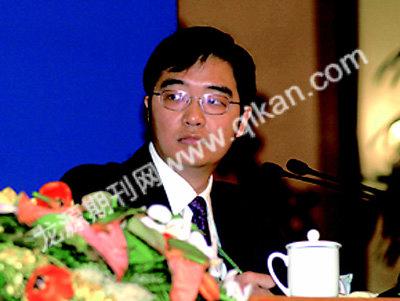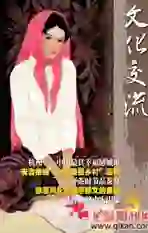Dark Horse Interpreter:Fei Shengchao
2009-06-05BiYu
Bi Yu

The last time Interpreter Fei Shengchao appeared on a public occasion was Premier Wen Jiabaos press conference at the second session of the 11th National People Congress on March 13, 2009. Fei was seen taking notes and interpreting for the premier. His interpretation was very impressive.
Interpreting on public occasions is only part of his work. Fei Shengchao has accompanied Chinese top leaders on their visits to foreign countries for more than 50 times. The following tells how Fei started his career as an interpreter for top Chinese leaders.
A Dark Horse Interpreter
The 36-year-old Fei Shengchao comes from Wuhan, the capital city of central Chinas Hubei Province. During his middle school years at the Wuhan Foreign Languages School, he took great interest in aircraft, warships and weapons and devoured all the Chinese books on the subject at the schools library within a year. Greatly intrigued and unsatisfied, he began to read up on the subject in English. The passion helped him become one of the best English speakers on the campus. He was nicknamed lovingly as dark horse on the football pitch in his college years as the swarthy forward could often break through the defense and score a goal.
In the early summer of 1996, Fei Shengchao had got an offer from a top foreign business while his classmates were busy getting job interviews. But then he learned that the foreign ministry was recruiting interpreters in Wuhan. He wanted to try his luck to fulfill his childhood dream of becoming a diplomat. He was confident because of his proficiency in English and his double degrees in economics. He passed all the examinations and got himself enrolled.

To his astonishment, he later found out that he was just one of over 200 top college graduates the foreign ministry had enrolled that year all over the country. He learned that, after a period of 6-month rigorous training and exams, only 4 to 6 of the group would qualify for the English section of the translation department.
The first test came one day at the beginning of his training. Fei Shengchao and other young recruits were told to watch English news on a small television. The news switched from BBC and CNN in turn. A few minutes later, they were told to jot down what had been actually said as accurately as possible. They had not been told it was a test and none was able to jot down anything noteworthy.It was a lesson all the young trainers took to heart.
After half a year of training, Fei Shengchao passed all the tests and became one of the few young interpreters. As a novice interpreter, he went with a few delegations to visit foreign countries and then he was sent to study simultaneous interpretation at the European Union. After the EU course, he began to take important missions. He interpreted for top Chinese leaders on their visits to foreign countries and he interpreted at some important international conferences. During these years he came out excellent in year-end evaluations of the ministry.
Because of the nature of his high-profile work, Fei attracted attention of his friends. He once received a phone call from a friend after he had spotted him working for a top Chinese leader on television news. But Fei knew that all the glory was deeply rooted in his constant assiduous work.
Interpreters at the foreign ministry know how difficult their work is. Most interpreters are graduates of languages or liberal arts. And most top Chinese leaders are specialists. Interpreters must become specialized as much as possible and as soon as possible during the few days after they know their work schedules. In preparing himself for Premier Wen Jiabaos visit to an optic fiber manufacturer, Fei had in advance checked the manufacturer out online and memorized a glossary. But he ran into difficulty while in interpreting, he had to ask for help from a colleague. This experience taught Fei a lesion. Since then he has always managed to get himself thoroughly prepared on possible subjects that might come up in his work. And on important occasions he wouldnt be able to get help from anyone else. So he needs to familiarize himself with important documents, editorials of Peoples Daily and news headlines, etc. He also needs to keep himself updated through foreign media and access news and information online.
Interpreting for Premier at NPR Four Times
Fei Shengchao has interpreted for the premier at the NPR press conference in four consecutive years. As a senior interpreter at the ministry, he usually has a tight workload at the beginning of each year and often has no time for the Spring Festival and home visit to his parents in Hubei Province. Though he had promised to celebrate the 2009 Spring Festival with his wife and daughter at home, he had to renege on his promise after he got the assignment to interpret for the premier again at the press conference to be held at the second session of the NPR in upcoming March.
The preparation was assiduous indeed. Though he would work alone, 40 colleagues at the translation department helped. They put together a thick pile of materials for him. And a simulation press conference was held to try out all possible questions and answers. And his colleagues would comment on his performance and make suggestions for improvements. During these days and nights, he worked hard. Sometimes he slept only three or four hours a day. His performance at the press conference was a great success. □
